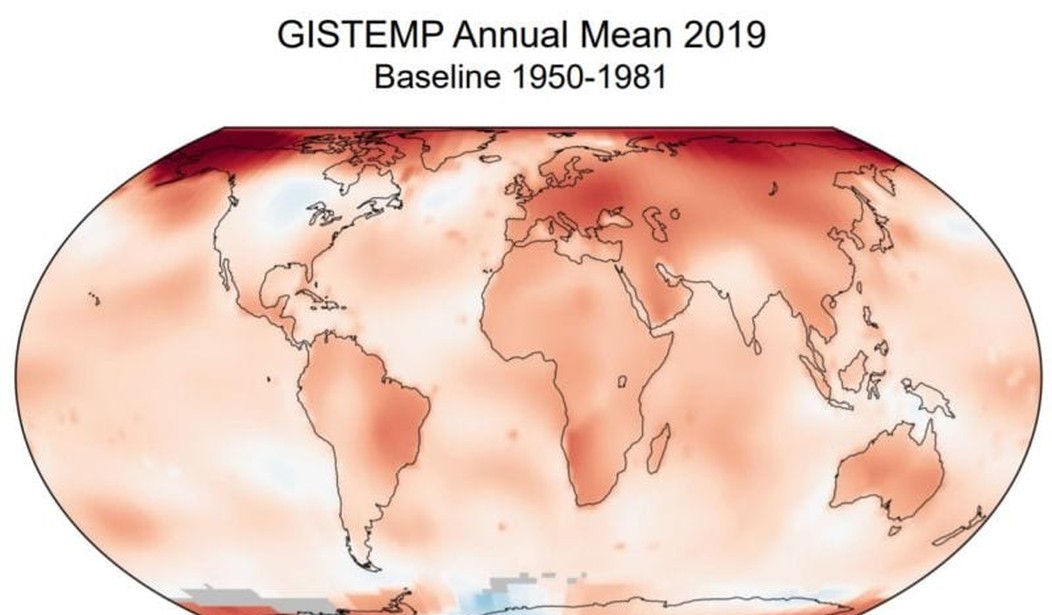First I’ll show you some very scary headlines. Then I’ll give you a 20-pound salt lick to take them with.
• Earth just suffered through a new second hottest year on record.
The weather is getting interesting, isn’t it? And if you want me to define interesting, I’ll just quote Hoban ‘Wash’ Washburn: “Oh God, oh God, we’re all going to die?”
No, we’re not all going to die. According to the smartest sources in the world, we have literally months before that’s going to happen.
When I saw the latest climate hysteria headlines earlier this week, I did what any rational person would do: I cashed out my IRA and spent it all on hookers and blow. My wife would like to have a few words with me, but she’s required to say them via her divorce lawyer.
I’m kidding, I swear.
No, the first thing I did was go to the ever-reliable climate sanity site, Watts Up With That, to get a little perspective. And sure enough, Anthony Watts’ latest item did just that.
Here’s what our “second-warmest year on record” looks like with Anthony’s historical perspective added in:
But how can the eggheads at NASA publish recorded numbers that are just so wrong? Well, the first part is what NASA and other doomsayers mean by “on record.” As Watts notes in another post on NASA’s new numbers, “they can’t even agree on a common base period for comparisons. Some graphs use 1951-1980 while others compare to 1981-2010 averages to create anomaly plots.” Coincidentally (cough, cough), 1951-1980 was a briefly cooler period, which makes it a very convenient baseline for those trying to sell climate hysteria. In other words, the “record” extends to cover whatever NASA needs it to cover for any desired data point.
How about a little more perspective?
The oldest human civilizations go back about 5,000 years. Industrialization didn’t come to Europe and North America until the late 18th century, and didn’t really get rolling until the mid-19th. It didn’t reach much of the rest of the world until the second half of the 20th century. That’s a long, drawn-out process, still incomplete, on a planet four billion years old, give or take. Humans have been here for a geological blink of an eye, and industrialization doesn’t even cover a twitch at the end of the blink.
Now it would be unfair to compare the climate of a planet with deep oceans and seven continents enjoying varying degrees of animal and plant life to a rapidly spinning hunk of and molten metal and rock from four billion years ago. The Earth’s current geography was set more or less in place by plate tectonics around 200 million years ago, if we aren’t being too picky about Australia splitting off from Antarctica (“only” about 120 million years ago). So 200 million years might be the best time from which to start measuring climate and climate changes. NASA goes back to 1850, when they’re stretching. If we’re rounding to the nearest five thousand, NASA’s records are short by… 200 million years.
If I’ve done my math right, that means we’re not being told 99.999075% of what we need to know. Although to be fair, that’s probably about average for government work.
Let’s go back to Anthony’s chart for a moment. I marveled a bit at the Roman Warm Period, which was quite a bit warmer than our “second-warmest year on record.” More to the point, it reminded me of something I wrote on this very subject five years ago:
Republican and early Imperial Rome flourished during a warmer period, able to bring in enough crops from Tunis and Egypt to feed one million inhabitants. A cooler period brought smaller harvests — and Germanic invaders from the north, seeking warmer climes because Germania had cooled, too. There was a period in the Middle Ages when Rome’s population had declined to a scant 10,000 — one one-hundredth of its imperial peak. The reasons for that had to do much more with politics than with the climate, but many of Rome’s bad policies were the direct and indirect results of global cooling. So it would seem that warming — to a point — would be beneficial to humanity, and that cooling would be bad.
So the next time someone tells you the earth is warming, just tell them: “I wish!”











